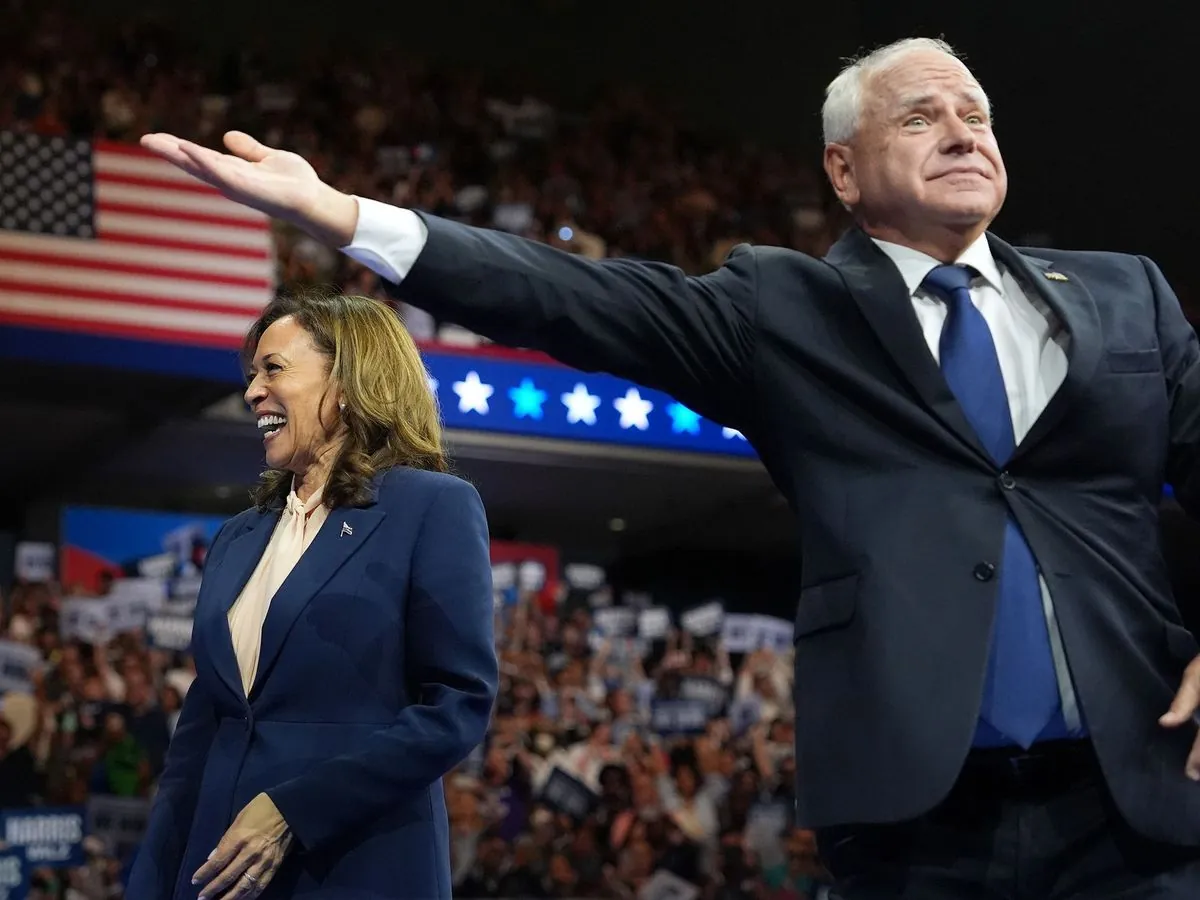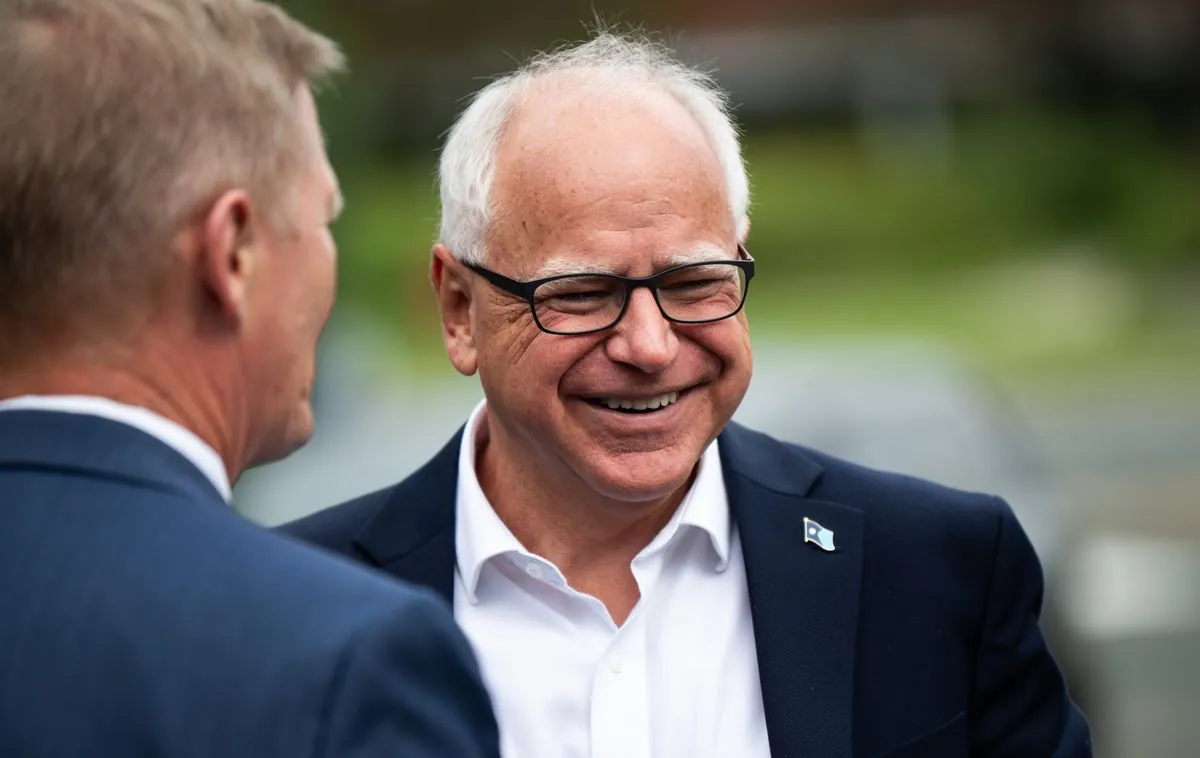Walz's China Ties: Asset or Liability in US Political Landscape?
Tim Walz's extensive China experience sparks debate amid rising US-China tensions. His human rights advocacy contrasts with Republican criticism, highlighting complex US-China relations in current politics.

Tim Walz, newly announced running mate of Vice President Kamala Harris, finds his long-standing relationship with China under scrutiny. This connection, spanning over three decades, has become a focal point in the current political discourse, reflecting the complex dynamics of US-China relations.
Walz's China journey began in 1989 when he participated in a Harvard-run teach abroad program, likely associated with the Harvard-Yenching Institute. He spent a year teaching English and American history at Foshan No. 1 High School in Guangdong province, China's third-largest economic powerhouse known for its openness to foreign investment.

During his time in China, Walz witnessed significant historical events, including the Tiananmen Square protests on June 4, 1989. This experience appears to have shaped his future political stance on China, particularly regarding human rights issues.
Upon returning to the US, Walz and his wife Gwen established Educational Travel Adventures, organizing annual trips to China until 2003. By 2016, Walz had visited China approximately 30 times, accumulating substantial firsthand experience with the country.
Elected to the House of Representatives in 2006, Walz, who holds a master's degree in genocide studies, became a vocal critic of China's human rights record. He served on the Congressional-Executive Commission on China, established in 2000 to monitor human rights and rule of law developments in China.
"With Governor Walz, it has always been about human rights."
Walz's advocacy includes co-sponsoring a resolution condemning the arrest of Liu Xiaobo, the 2010 Nobel Peace Prize laureate, and meeting with the Dalai Lama, who has been in exile since 1959. In 2017, Walz co-sponsored the Hong Kong Human Rights and Democracy Act, which passed in 2019 and allows for sanctions on Chinese officials.
Republicans have attempted to portray Walz as "pro-China," with former Trump administration ambassador Richard Grenell claiming "Communist China is very happy" with Walz's candidacy. However, Walz's consistent criticism of China's human rights record contradicts these assertions.
Chinese analysts offer mixed views on Walz's potential impact on US-China relations. While some suggest his experience could lead to more pragmatic policies, others believe it might make him a more formidable opponent for the Chinese government.
As anti-China sentiment in the US continues to grow, Walz's unique position – combining extensive experience with China and a strong human rights advocacy record – presents both challenges and opportunities in the current political landscape.


































